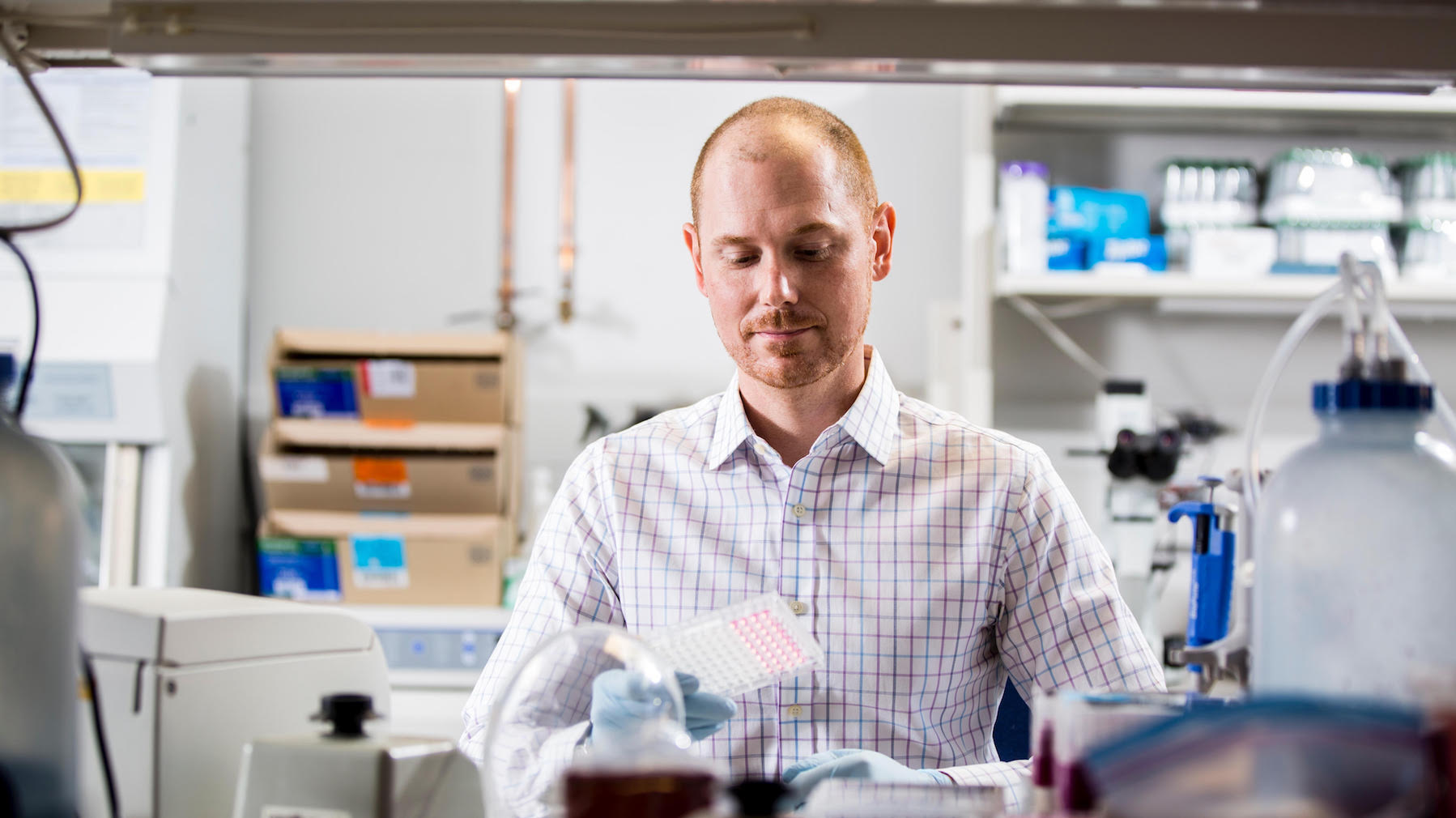An Oklahoma Medical Research Foundation scientist is looking to the gut in the search for answers about osteoarthritis.
The National Institutes of Health has awarded OMRF physician-scientist Matlock Jeffries, M.D., a two-year, $874,000 grant to launch an innovative study of the origin and progression of OA, the most common form of arthritis. Stemming from the loss of cartilage between bones and joints, OA is the leading cause of disability and joint replacements in adults in the U.S.
“The only definitive treatment for OA of the knee is a joint replacement — and it’s the number-one expense for Medicare each year,” said Jeffries, a board-certified rheumatologist who joined OMRF in August. “We have no medications that can slow or stop OA progression, nor do we have ways to predict the way OA will develop or advance in a patient.”
To look for clues about how OA gets its foothold in the body, Jeffries is turning to the digestive system. He will build on a recent discovery that joints are not without traces of microbes, instead home to bacterial DNA that resides in cartilage. His lab will now try to determine if that bacteria originates in the gut microbiome.
The microbiome is composed of tiny organisms living in our digestive tracts. The organisms may be key players in obesity, diabetes, autism, asthma and a variety of autoimmune diseases. By identifying which microbes are responsible for influencing the development of or resistance to disease, it can offer clues to new ways to diagnose or treat it.
“We want to figure out what the gut microbiome and cartilage microbial DNA have to do with OA,” said Jeffries. “A lot more people get OA now than they did in the past, so we want to know if that could be related to changes in the microbiome and if we could prevent it by changing the makeup of gut microbes.”
In one part of the study, germ-free research models will receive gut microbes from young, OA-susceptible research mice. Researchers will look at patterns that develop over time, test how variations in the microbial DNA of cartilage influence the severity of OA and whether those patterns can be changed.
The NIH program funding Jeffries’ work, Research Innovations for Scientific Knowledge, or RISK, supports innovative, disease-focused studies. Researchers are encouraged to pursue unusual, imaginative hypotheses that deviate from the current prevailing theories or practice.
“Dr. Jeffries will be the first to evaluate whether gut microbiome transplantation may be used as a therapeutic agent to prevent osteoarthritis,” said OMRF Vice President of Clinical Affairs Judith James, M.D., Ph.D., who leads the foundation’s Arthritis & Clinical Immunology Research Program. “This work may open a new avenue for OA research and offer a new treatment strategy for this common cause of pain and disability.”
The grant (1R61 AR078075-01) is funded by the National Institute of Arthritis and Musculoskeletal and Skin Diseases, a part of the NIH.



